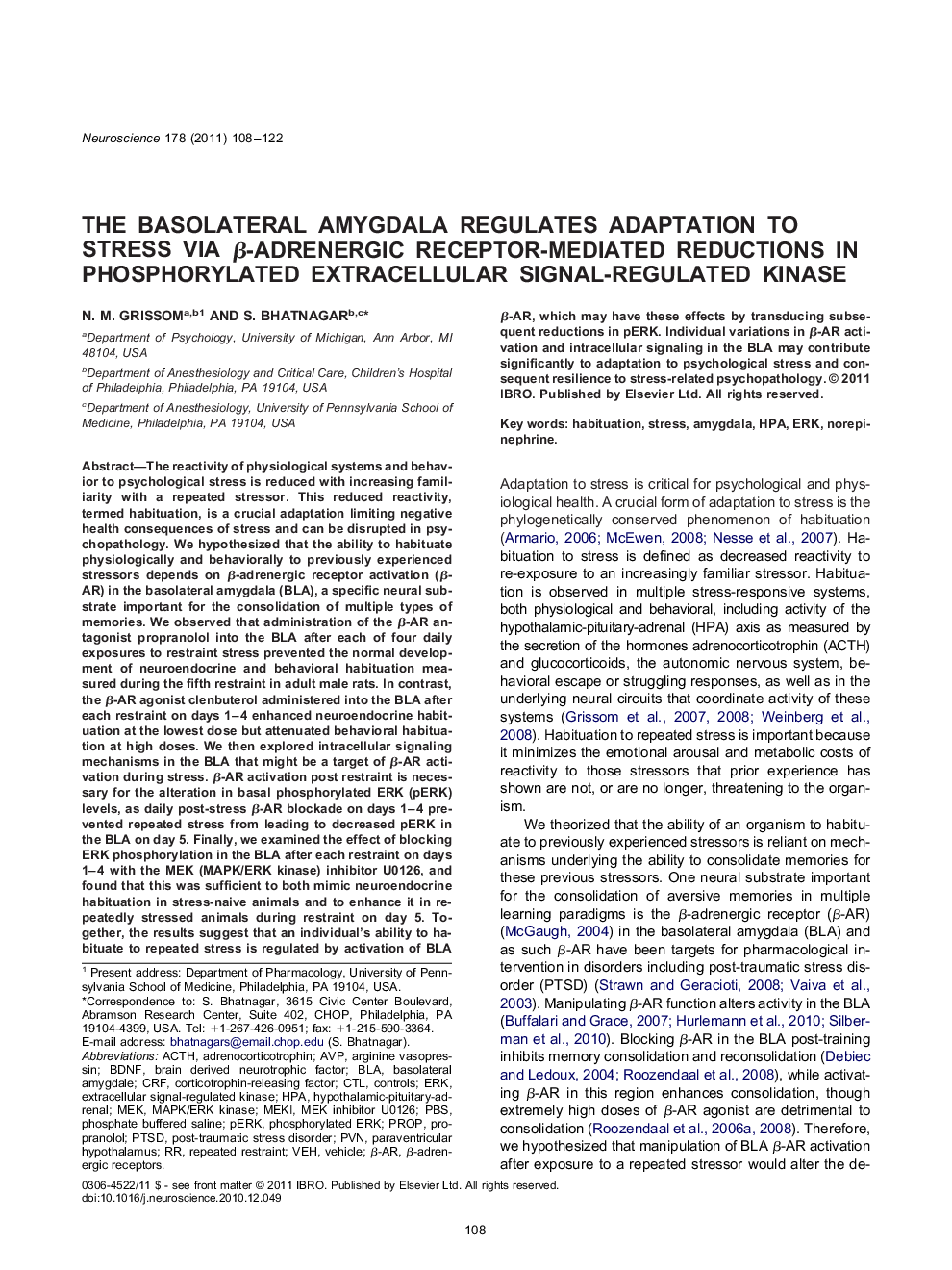| کد مقاله | کد نشریه | سال انتشار | مقاله انگلیسی | نسخه تمام متن |
|---|---|---|---|---|
| 4339089 | 1614898 | 2011 | 15 صفحه PDF | دانلود رایگان |

The reactivity of physiological systems and behavior to psychological stress is reduced with increasing familiarity with a repeated stressor. This reduced reactivity, termed habituation, is a crucial adaptation limiting negative health consequences of stress and can be disrupted in psychopathology. We hypothesized that the ability to habituate physiologically and behaviorally to previously experienced stressors depends on β-adrenergic receptor activation (β-AR) in the basolateral amygdala (BLA), a specific neural substrate important for the consolidation of multiple types of memories. We observed that administration of the β-AR antagonist propranolol into the BLA after each of four daily exposures to restraint stress prevented the normal development of neuroendocrine and behavioral habituation measured during the fifth restraint in adult male rats. In contrast, the β-AR agonist clenbuterol administered into the BLA after each restraint on days 1–4 enhanced neuroendocrine habituation at the lowest dose but attenuated behavioral habituation at high doses. We then explored intracellular signaling mechanisms in the BLA that might be a target of β-AR activation during stress. β-AR activation post restraint is necessary for the alteration in basal phosphorylated ERK (pERK) levels, as daily post-stress β-AR blockade on days 1–4 prevented repeated stress from leading to decreased pERK in the BLA on day 5. Finally, we examined the effect of blocking ERK phosphorylation in the BLA after each restraint on days 1–4 with the MEK (MAPK/ERK kinase) inhibitor U0126, and found that this was sufficient to both mimic neuroendocrine habituation in stress-naive animals and to enhance it in repeatedly stressed animals during restraint on day 5. Together, the results suggest that an individual's ability to habituate to repeated stress is regulated by activation of BLA β-AR, which may have these effects by transducing subsequent reductions in pERK. Individual variations in β-AR activation and intracellular signaling in the BLA may contribute significantly to adaptation to psychological stress and consequent resilience to stress-related psychopathology.
Research highlights▶Post-restraint β-AR activity in BLA regulates habituation to subsequent restraint. ▶β-AR activation after stress leads to sustained reductions in ERK phosphorylation. ▶The reduction in ERK phosphorylation is functionally relevant to habituation. ▶There is an inverted U-shape relationship between BLA β-AR activity and habituation. ▶Differences in β-AR activity underlying habituation may be relevant for psychopathology.
Journal: Neuroscience - Volume 178, 31 March 2011, Pages 108–122